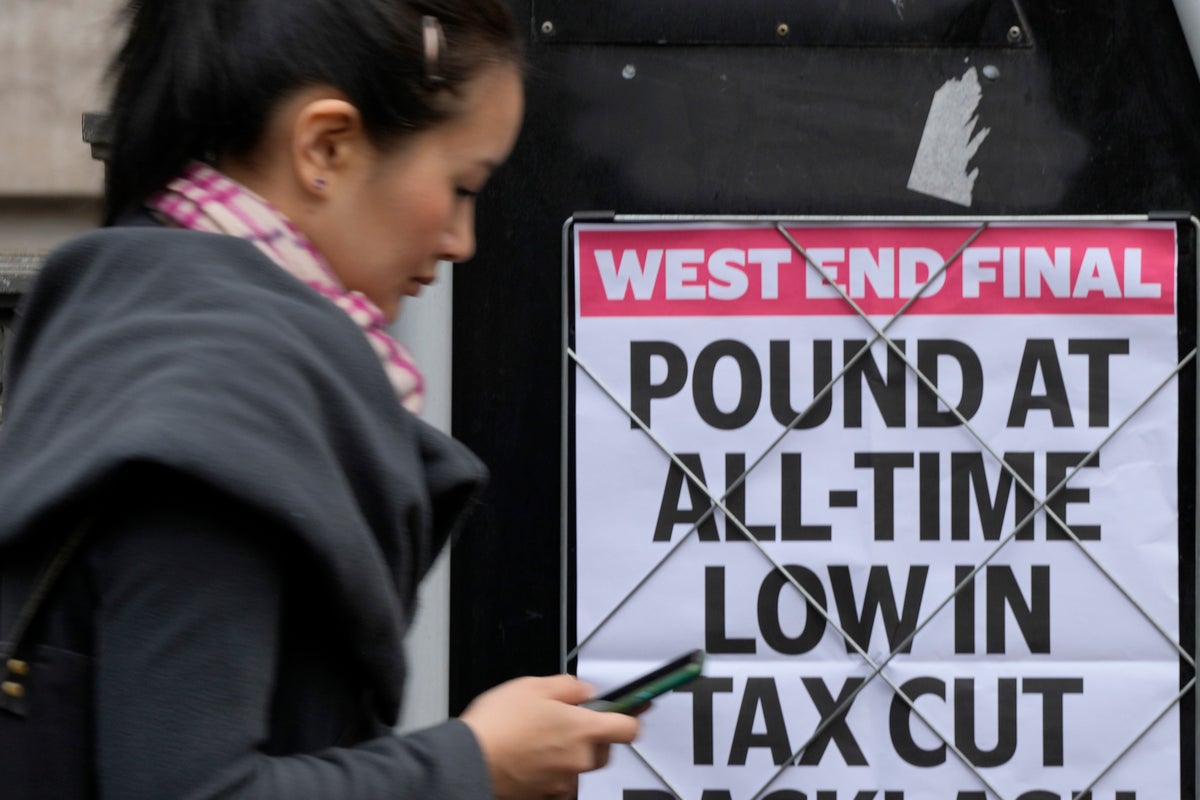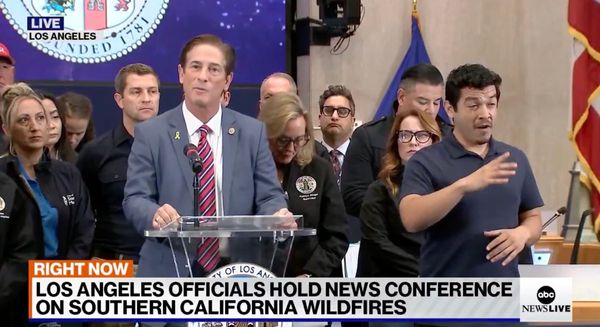
The Bank of England (BoE) has announced it is making an emergency intervention to calm currency markets still reacting adversely to the tax-slashing “mini-Budget” chancellor Kwasi Kwarteng unveiled on Friday.
Since the pound plummeted to an all-time low against the US dollar on Monday morning, Mr Kwarteng has faced repeated calls to change course and reverse his “plan for growth”, which is reliant on heavy borrowing as part of its bid to stimulate the economy, most recently from no less an authority than the International Monetary Fund itself.
Britain’s central bank has likewise faced calls from economists to step in and raise interest rates to steady the ship in advance of its next planned Monetary Policy Committee meeting on the subject, currently scheduled for 3 November.
The BoE responded to that by saying it would “not hesitate” to take such a step should it deem it necessary - but has so far not done so.
However, on Wednesday morning, the BoE said it would intervene to buy up long-dated government bonds – known as gilts – at an “urgent pace” in response to the mini-Budget sparking a sell-off in the gilts market.
“Were dysfunction in this market to continue or worsen, there would be a material risk to UK financial stability,” the BoE said in a statement.
“This would lead to an unwarranted tightening of financing conditions and a reduction of the flow of credit to the real economy.
“In line with its financial stability objective, the Bank of England stands ready to restore market functioning and reduce any risks from contagion to credit conditions for UK households and businesses.”
The BoE said it would buy bonds “on whatever scale is necessary” in order to steady gilts and “restore orderly market conditions”, adding that its bond-buying programme would be temporary, starting from Wednesday 28 September and running until Friday 14 October.
For the mercifully uninitiated, a government bond (or gilt) represents state debt and is issued by a presiding administration for sale to investors to support national spending initiatives.
The bond market is believed to be the biggest securities market in the world, worth an estimated £93trn.
By buying gilts, the purchaser is essentially extending a loan to the government at low risk to themselves.
Their incentive comes in the form of bond yields, the money the holder accumulates for owning the debt as a percentage of its current price, essentially a proxy interest rate on public borrowing.
Yields increase as the value of a bond declines, which occurs when purchasers are in short supply, their reluctance to bite an expression of a lack of confidence in the economy and public finances, as we are seeing currently in a week in which the yield on 10-year gilts has soared by the most over a five-year period since 1976.
Paying for Mr Kwarteng’s tax cuts will require the sale of £72.4bn in national debt this financial year alone, on top of the BoE’s own planned sale of another £40bn in bonds to pay for the closure of its quantitative easing programme.
According to Deutsche Bank, gilt sales will now need to pass £250bn over the present and next financial years, the highest funding drive since the 1990s.
As a result, Bank of America analysts have warned that the UK faces a “feedback loop” caused by a weak pound driving inflation and bond yields up and necessitating even further government borrowing, compounding the present crisis.
Responding to the central bank’s decision on Wednesday, the Treasury reaffirmed its commitment to the institution’s independence and said the government “will continue to work closely with the BoE in support of its financial stability and inflation objectives”.
It also said that the Bank’s move had become necessary because “global financial markets have seen significant volatility in recent days” and because it had “identified a risk from recent dysfunction in gilt markets”, making no mention of the phenomena’s close relation to Mr Kwarteng’s announcement.







